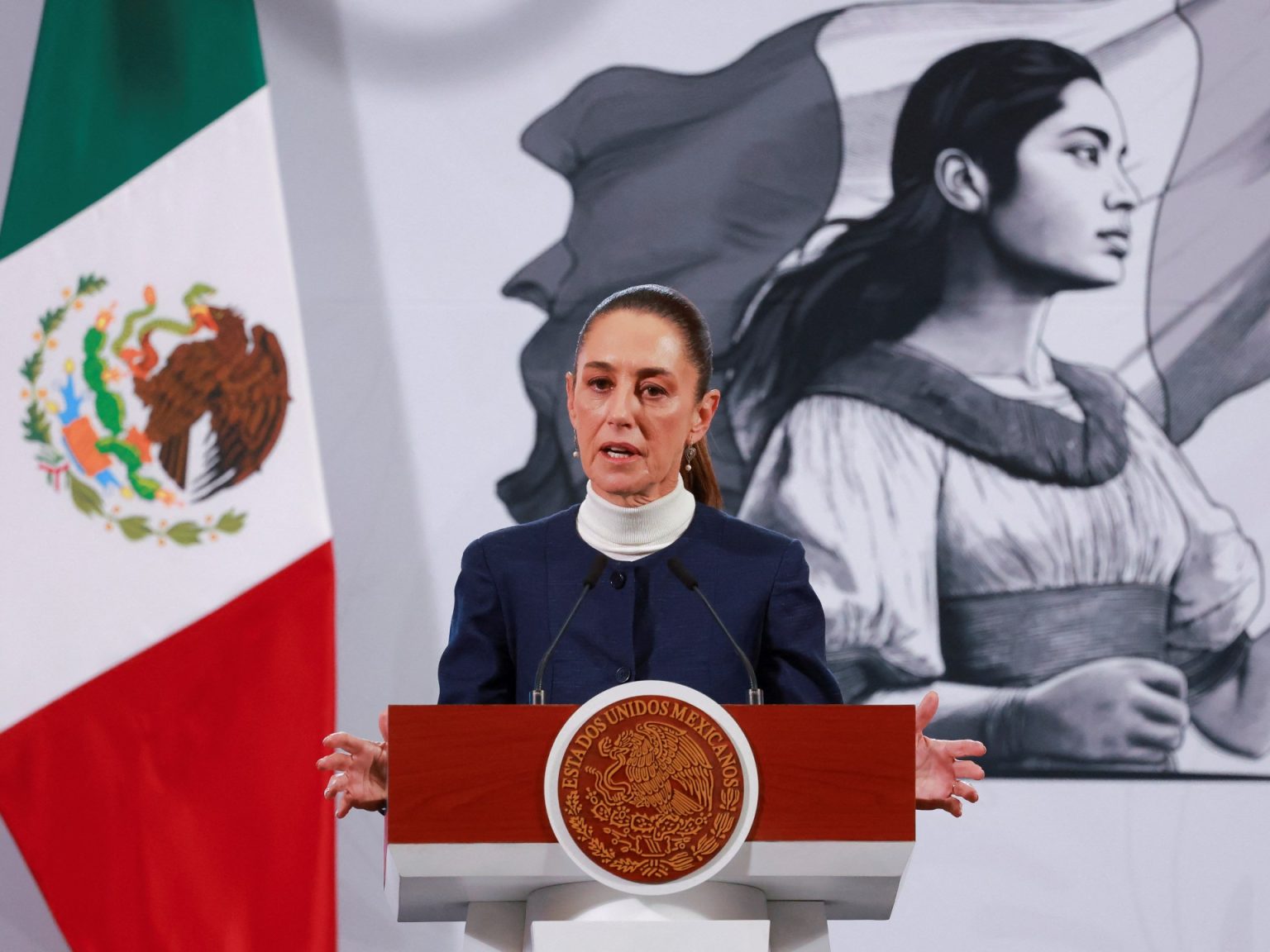The recent announcement of a one-month pause on tariffs between the United States and Mexico followed a critical phone call between Mexican President Claudia Sheinbaum and US President Donald Trump. President Sheinbaum shed light on the conversation, revealing that the discussion centered around the complex and interconnected issues of migration, drug trafficking, and arms smuggling. These intertwined challenges have long strained the relationship between the two nations, prompting the need for high-level dialogue to address mutual concerns and explore potential solutions. The one-month reprieve offers a window of opportunity for both countries to engage in deeper negotiations and formulate a more comprehensive and sustainable approach to managing these multifaceted issues.
The issue of migration, a recurring point of contention between the US and Mexico, formed a significant part of the presidential conversation. The flow of migrants across the US-Mexico border has prompted heated debate and policy responses, often characterized by heightened security measures and stricter immigration enforcement. President Sheinbaum’s comments suggest that the discussion delved into the root causes of migration, potentially exploring the economic, social, and political factors that drive individuals to leave their home countries. Finding common ground on addressing these underlying issues is crucial for developing effective and humane migration management strategies. The pause in tariffs may indicate a willingness on both sides to move beyond reactive measures and embrace a more collaborative approach to the migration challenge.
Drug trafficking, another persistent concern shared by both nations, also featured prominently in the dialogue. The illicit drug trade fuels violence and instability in both countries, necessitating joint efforts to disrupt trafficking networks and stem the flow of narcotics. The conversation likely explored strategies for enhancing cooperation in law enforcement, intelligence sharing, and cross-border operations. Addressing the demand side of the drug trade, through prevention and treatment programs, may also have been a topic of discussion, as a comprehensive approach requires tackling both supply and demand dynamics. The temporary reprieve from tariffs could signal a commitment to bolstering collaborative efforts in combating drug trafficking and reducing its devastating impact on communities on both sides of the border.
The flow of weapons from the United States into Mexico represents a critical element in the complex web of security challenges facing both nations. The easy availability of firearms in the US contributes to the firepower of criminal organizations in Mexico, fueling violence and undermining efforts to maintain law and order. President Sheinbaum’s statement suggests that the conversation addressed the urgent need to stem the flow of weapons across the border. This likely involved discussions about enhancing border security measures, improving information sharing on arms trafficking, and potentially exploring stricter regulations on firearms sales within the US. The pause on tariffs could pave the way for more concrete actions to address this crucial aspect of bilateral security cooperation.
The one-month pause on tariffs provides a valuable opportunity for the US and Mexico to engage in deeper and more substantive negotiations. The complex and interconnected nature of the issues discussed – migration, drug trafficking, and arms smuggling – requires a comprehensive and multifaceted approach. This period of reprieve allows both governments to develop detailed proposals, explore potential areas of compromise, and work towards a more sustainable framework for managing these shared challenges. The success of these negotiations will depend on a willingness to move beyond entrenched positions and embrace a spirit of cooperation and mutual respect.
The outcome of these upcoming negotiations will have significant implications for the future relationship between the US and Mexico. A successful outcome could pave the way for enhanced cooperation on a wide range of issues, fostering greater stability and prosperity in both nations. Failure to reach a mutually agreeable solution, however, could exacerbate existing tensions and further complicate the already complex dynamics of the bilateral relationship. The one-month pause on tariffs represents a critical juncture, offering a window of opportunity to address long-standing challenges and build a more productive and collaborative partnership. The world will be watching closely as these two nations navigate this delicate diplomatic dance, hoping for a positive outcome that benefits both countries and the wider region.

